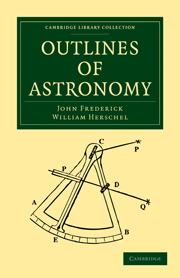INTRODUCTION
Published online by Cambridge University Press: 05 July 2011
Summary
(1.) Every student who enters upon a scientific pursuit, especially if at a somewhat advanced period of life, will find not only that he has much to learn, but much also to unlearn. Familiar objects and events are far from presenting themselves to our senses in that aspect and with those connections under which science requires them to be viewed, and which constitute their rational explanation. There is, therefore, every reason to expect that those objects and relations which, taken together, constitute the subject he is about to enter upon will have been previously apprehended by him, at least imperfectly, because much has hitherto escaped his notice which is essential to its right understanding: and not only so, but too often also erroneously, owing to mistaken analogies, and the general prevalence of vulgar errors. As a first preparation, therefore, for the course he is about to commence, he must loosen his hold on all crude and hastily adopted notions, and must strengthen himself, by something of an effort and a resolve, for the unprejudiced admission of any conclusion which shall appear to be supported by careful observation and logical argument, even should it prove of a nature adverse to notions he may have previously formed for himself, or taken up, without examination, on the credit of others. Such an effort is, in fact, a commencement of that intellectual discipline which forms one of the most important ends of all science. It is the first movement of approach towards that state of mental purity which alone can fit us for a full and steady perception of moral beauty as well as physical adaptation.
- Type
- Chapter
- Information
- Outlines of Astronomy , pp. 1 - 9Publisher: Cambridge University PressPrint publication year: 2010First published in: 1864

